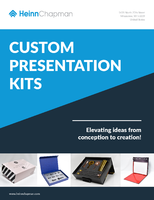Harper Awarded Contract for Complete State-of-the-Art Carbon Fiber Processing Line at Oak Ridge National Laboratory
Buffalo, NY - Harper International, leader in the design of thermal processing solutions for advanced materials, has finalized a contract with the United States Department of Energy's (DOE) Oak Ridge National Laboratory (ORNL) for a full pilot scale carbon fiber process line valued at greater than US$12M. The line is a custom designed conversion process to support ORNL's Low Cost Carbon Fiber research and technology transfer. The facility, to be a collaborative research center, is designed as one of the most sophisticated and capable facilities in the industry.
Harper was selected for the contract due to its capability to successfully design, manufacture, install, and commission a fully integrated carbon fiber process line. Harper was chosen after an open public tender as the technical and implementation partner for engineering, process equipment, installation and startup of the line which will support operation under multiple precursor platforms.
The custom-designed line incorporates Harper's proprietary multi-flow oxidation oven technology, advanced LT and HT slot furnaces rated for 1000°C and 2000°C respectively, pre and post-treatment fiber conditioning, gas treatment and handling, and material transport systems. Harper focuses on holistic designs to link the process steps, ensuring optimal performance.
One of ORNL's initiatives is directed towards the utilization of lignin as a precursor to enable low cost production of carbon fibers. Lignin is a renewable resource material that is separated from paper mill and/or biorefinery cellulose and considerably less costly than traditional precursor material. The primary objective is to develop more energy-efficient, cost-effective materials and processes for production of affordable carbon fibers for use in composite materials for high-volume energy applications such as vehicles. Carbon fiber composites would substantially reduce vehicle weight, decrease fuel consumption, and result in lower greenhouse gas emissions. The conversion line designed by Harper is capable of processing traditional PAN precursor as well as emerging feedstock, such as lignin.
Funding for the equipment was appropriated through the American Recovery and Reinvestment Act via DOE's Office of Energy Efficiency and Renewable Energy Vehicle Technologies Program.




